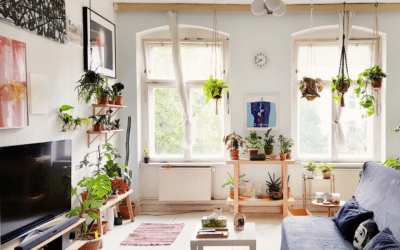It’s our sanctuary, our comfort zone, and now, more than ever, our responsibility. With climate change knocking at our door, it’s time we turn our attention to increasing our home’s energy efficiency. This is not just about cost savings—though it is a significant incentive—it’s about the much larger picture of sustainability and the legacy we leave for future generations. This article will provide insightful tips for improving your home’s energy efficiency, from leveraging your thermostat to prioritizing indoor air quality, and from regular heating and cooling system maintenance to seeking professional HVAC services. Each tip aligns with a simple yet powerful principle: small changes can create significant impact, pushing us towards a sustainable, energy-efficient future.
Enhancing Your Home’s Energy Efficiency
Adopt a Climate-Conscious Lifestyle
In our rapidly changing world, the importance of making our homes more energy efficient cannot be overstated. Energy efficiency not only saves money but also contributes significantly towards mitigating the effects of climate change. Here, we delve into effective tips for increasing your home’s energy efficiency and nurturing a sustainable living environment.
Leverage Your Thermostat Wisely
A thermostat is much more than a temperature control tool—it’s a gateway to energy efficiency. Programmable thermostats offer automatic settings that adjust the temperature according to your lifestyle, reducing energy consumption when you are away from home or asleep. Smart thermostats even provide you with energy usage data, empowering you to make informed decisions about your consumption patterns. Remember, every degree of adjustment can mean significant savings on your heating and cooling bills.
Prioritize Indoor Air Quality Improvement
One vital yet often overlooked aspect of energy efficiency is indoor air quality. Proper ventilation and regular maintenance of your HVAC systems can significantly improve your Indoor Air Quality, enhancing comfort while ensuring efficient energy use. Consider investing in air purifiers or humidity control solutions to balance indoor air conditions, promoting health and reducing strain on your HVAC systems.
Maintain and Upgrade your Heating & Cooling Systems
Routine Heating & Cooling System Repairs can dramatically enhance your home’s energy efficiency. Regular maintenance prevents minor issues from escalating into significant problems, prolonging your system’s lifespan and maintaining its performance. When the time comes for an upgrade, consider energy-efficient models. Newer HVAC systems are designed with energy conservation in mind, offering a powerful and cost-effective solution for your home.
Consider Comprehensive HVAC Services
Opting for comprehensive HVAC services is a crucial step towards embracing a more energy-efficient home. These services, provided by trained professionals, encompass a variety of solutions designed specifically to enhance your home’s energy performance. One such service is an energy audit, a detailed assessment that identifies areas in your home where energy is being wasted. This can range from leaky ductwork to inefficient appliances, offering a roadmap for improvements.
Moreover, HVAC professionals can provide system upgrades, including the installation of energy-efficient heating and cooling equipment. Such equipment, designed with the latest technologies, not only reduces energy consumption but also improves overall home comfort. Routine maintenance and repairs, another aspect of professional HVAC services, ensures your systems perform at their peak, increasing their lifespan and efficiency while decreasing energy costs.
Some Simple Practices With Major Impact
In addition to the above major customizations, some simple lifestyle changes can also help you to improvise home energy efficiency. Here are some tips that everyone can follow:-
-
Seal Drafts and Insulate Properly
Your home’s energy efficiency can be greatly affected by unwanted drafts and improper insulation. Both can lead to increased heating and cooling needs, causing HVAC systems to work overtime. Invest time in sealing drafty windows, doors, and cracks with weather stripping or caulk. A well-insulated home retains heat during winter and repels it during summer, reducing the need for constant heating and cooling.
-
Upgrade to Energy-Efficient Appliances
The appliances we use daily can contribute to a significant portion of our energy bills. When the time comes to replace old appliances, opt for energy-efficient models. Energy Star-rated appliances, for example, are designed to use less electricity, helping to lower your utility bills and increase your home’s overall energy efficiency.
-
Subheading: Conserve Water
Water conservation is often overlooked when discussing energy efficiency, but it plays an integral role. Shorter showers, efficient dishwashing, and water-saving appliances can make a significant difference. Also, consider collecting rainwater for use in gardening. This can conserve substantial amounts of water and energy over time.
Conclusion
Increasing your home’s energy efficiency is not just about saving money—it’s about contributing to a sustainable future. By optimizing your thermostat use, prioritizing indoor air quality, maintaining your heating and cooling systems, and utilizing professional HVAC services, you are creating a home that’s efficient, comfortable, and climate-conscious. Your energy-smart home is not only a personal win, but a victory for our planet.



0 Comments